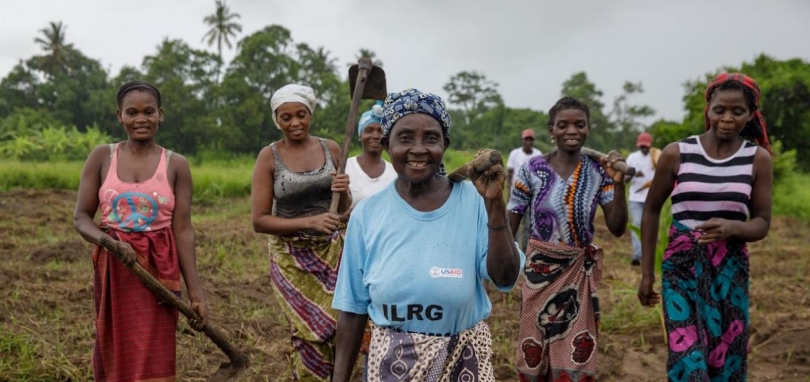Land and natural resources are critical for rural women’s livelihoods and economic security. There is growing evidence that secure land rights are a key element of women’s empowerment, leading to benefits for women, households, communities, and agrifood systems. According to the 2023 United Nations Food and Agriculture Organization (FAO) The Status of Women in Agrifood Systems report, women’s ownership and control over land and natural resources are linked to expanded economic opportunities and security for women, greater decision-making and bargaining power for women, increased agricultural productivity, increased household profitability and responsible expenditure, reduced vulnerability to gender-based violence (GBV),1 improved adoption of technologies and climate-smart practices, and greater resilience to external shocks from climate change, conflict, and health or economic crises.
Yet, 40 percent of countries worldwide have legal limitations to women’s rights to own land and property. Only 44 countries provide men and women equal inheritance rights in law and practice, and women make up less than 20 percent of landholders globally. More importantly, even when women have legal rights to land, social norms constrain their ability to own, access, inherit, and control land. This is further complicated because in many countries land rights are governed by customary systems that are often male-dominated and influenced by harmful gender norms.
The United States Agency for International Development (USAID) Integrated Land and Resource Governance (ILRG) Activity drew upon conceptual and programmatic frameworks on social norms change that have been developed and applied in other international development sectors2 to strengthen women’s land rights as a pathway for empowerment and economic security. ILRG is a global mechanism that works with governments, traditional and customary authorities, communities, civil society organizations, and private sector partners to improve land rights, support inclusive land and resource governance, build resilient livelihoods, and promote women’s empowerment and economic security. ILRG designed and implemented norms-shifting interventions in five countries – Ghana, India, Malawi, Mozambique, and Zambia. Activities in each country had different timeframes (varying from 18 months to five years of engagement) and focused on one or more of three main areas of work: land rights, natural resource management, and land-based agroforestry value chains.


